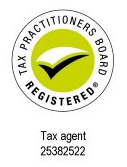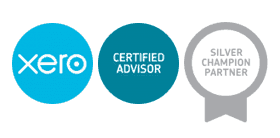When starting a new business, the first consideration should be what structure you plan to operate in. Options include sole trader, partnership, company or trust. This may seem like a simple matter but the structure of your business impacts on your tax, personal liabilities, asset protection and reporting obligations. The legal structure that you choose will have an effect on three main areas:-
- Taxation – Your structure dictates how much tax you have to pay at the end of the year.
- Business Growth – Your structure affects your ability to bring in investors or offer equity to key staff.
- Personal Liability – Your structure determines your level of personal liability if something goes wrong.
Obviously it is beneficial to choose the correct structure during the initial start-up phase. However, few small business owners realise they are able to change their structure at a later date to align with growth plans or an exit strategy.
Let’s take a look at the available options and the pros and cons of each one.
Sole Trader Structure
A sole trader is a person trading as the individual legally responsible for all aspects of the business. This includes any debts and losses, which can’t be shared with others.
This is the simplest and relatively inexpensive business structure to start a business. However, the downside is all your personal assets would be exposed if things go wrong, such as lawsuits, bankruptcy or relationship breakdown and there is little opportunity for income splitting unless via legitimate employment.
Partnership Structure
A partnership involves two or more people who go into business together.
It’s relatively easy and inexpensive to set up. However, be very careful with this structure as each partner is liable for their share of the partnership debt plus those of the other partners, even if the partner had no knowledge of and was not responsible for creating the debt. Many business owners are not aware of these “joint and several liabilities”. If this structure is chosen the law assumes that the partnership is equal unless there is a partnership agreement which states otherwise. Whilst this may be fine for income splitting this division does not apply when it comes to debt as the liabilities are joint and several which means one partner can become responsible for all the debt of the partnership.
Company Structure
A company is a separate legal entity which has the same rights as a natural person and can incur debt, sue and be sued.
Business operations are controlled by directors and owned by the shareholders. The shareholders can limit their personal liability and are generally not liable for company debts except in cases of insolvent trading and PAYG withholding debt. The disadvantage of a company is higher set-up and administrative costs because of additional reporting requirements with ASIC. A company has fixed tax rate which generally means tax is levied on every dollar of net profit and capped at 25% if it is a base rate entity. However, a company has no access to the 50% general Capital Gains Discount on the sale of assets. This structure allows for multiple shareholders with a maximum of 50 non-employee shareholder for a private company and therefore there is scope for raising capital within certain limits.
Discretionary Trust Structure
A trust is a relationship where a person (the Trustee) is under an obligation to hold property for the benefit of other persons (the Beneficiaries).
A discretionary trust is a trust in which the beneficiaries’ entitlements to receive capital and incomes are not fixed but at the discretion of the trustees. A discretionary trust with trustee company is a very popular business structure because it offers asset protection, flexibility in income splitting and access to the 50% general Capital Gains Discount. A discretionary trust is not a suitable business structure if you plan to go into business with unrelated parties. Care must also be taken in the initial set-up of a discretionary trust to allow for succession in the event of disability or death of any individual trustee or director of a trustee company.
Unit Trust Structure
A unit trust is similar to discretionary trust however the beneficiaries have fixed entitlement to capitals and incomes.
A unit trust has less regulation than a company and is easier to wind up. It also has access to the 50% general Capital Gains Discount. Units in a unit trust can be easily transferred. This is a suitable structure for unrelated parties to go into business together. The downside is stamp duty is payable on the sale/transfer of units in many states. Unit trusts also offers less flexibility in income splitting and asset protection compared to a discretionary trust.
As you can see there are many things to consider and it is important to get it right as mistakes can be very costly. If you need help with setting up a new business or structure for investments get in touch with Sumz Plus Business Services now.









